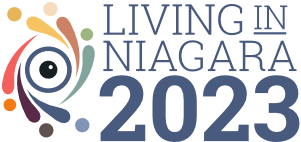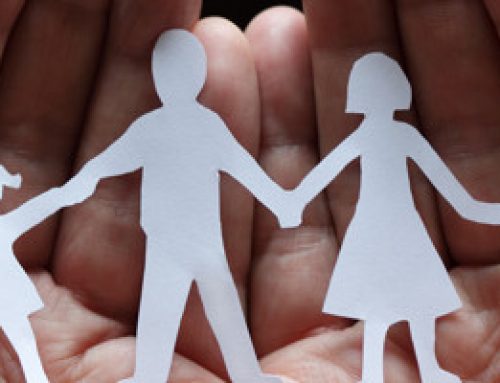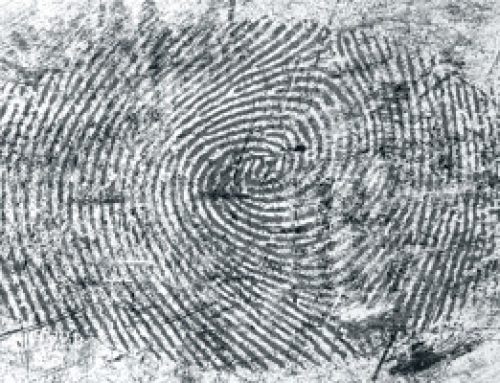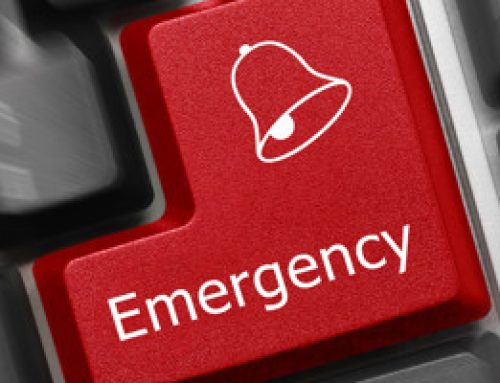National Context
The 2016 Canadian Index of Wellbeing (CIW) National Report tracks Indicators from 1994 to 2014, across 8 Domains that align with the 12 Living in Niagara Sectors. The CIW includes community safety indicators in the Community Vitality Domain. The national Crime Severity Index has fallen 78.2% since 1998, and the overall crime rate fell by 54% between 2003 and 2014. Almost 78.7% of Canadians report feeling safe walking alone after dark in their communities; men feel slightly safer (over 90%) on this measure than women (67.8%).
Source: Canadian Index of Wellbeing National Report: How are Canadians Really Doing?
Retrieved From: http://www.niagaraknowledgeexchange.com/resources-publications/the-2016-canadian-index-of-wellbeing-national-report-how-are-canadians-really-doing/
Elder Abuse
The Niagara Elder Abuse Alliance (NEAA) is coordinating efforts to address ageism and under-reporting related to various forms of abuse of older adults. NEAA members include the Niagara Regional Police Service, Crime Stoppers of Niagara and the Alzheimer Society of Niagara Region.
NEAA is partnering with the Niagara Elder Abuse Prevention Network, which aims to work collaboratively with agencies and seniors to prevent elder abuse and create a safe community in which older adults are valued and respected within Niagara.
NEAA is spearheading construction of a community response plan to address abuse of older adults in Niagara. The Alliance hosted a May, 2017 interactive community planning meeting of diverse partners, to exchange ideas on issues surrounding elder abuse. The group is moving forward to develop a community response agreement and create a tracking record to gather statistics about reports of abuse within all participating organizations.
Further information can be provided by Crime Stoppers Niagara; The Alzheimer Society of Niagara Region or Niagara Regional Police Service Fraud Unit.
Source: Crime Stoppers Niagara and Niagara Elder Abuse Prevention Network
Retrieved From: http://www.alzheimer.ca/en/niagara/We-can-help/Elder-abuse/Niagara-elder-abuse
Information and Safety Programs in Schools and the Community
The Niagara Safety Village is a registered non-profit organization that provides hands on safety and injury-prevention educational programs to the residents of the Niagara Region and Haldimand/Norfolk County.
The Niagara Safety Village provides onsite safety education programs to over 7100 students annually and those numbers continue to grow. Since they first opened their doors in the fall of 2003 they have expanded their safety programs to include all grades at the elementary level. They have also provided safety programs to specialized groups including community living, senior safety, homeschoolers of Niagara and private daycares and schools.
Source: Niagara Safety Village
Retrieved From: http://www.niagarasafetyvillage.com/
The Niagara Regional Native Centre Three Fires Community Justice Program provides an alternative to court for Aboriginal adults and youth that have acquired criminal charges. Through the program, Aboriginal accused have the option to apply to have their charges diverted (deferred) out of the courts and placed into the Aboriginal Community Justice Program.
Once an individual is in the program, a Healing Plan will be jointly created between the participant and trained Community Council Members. The Healing Plan addresses the underlying causes that lead to the offence by establishing conditions the participant will be required to complete during the adjournment period.
Source: Niagara Regional Native Centre
Retrieved From: http://www.nrnc.ca/
The Fort Erie Native Friendship Centre Aboriginal Criminal Court Worker Program assists Aboriginal people involved in the Canadian justice system to better understand their rights, options, and responsibilities when appearing before the court. The court worker provides consistent and ongoing attendance in advance of and during Criminal court; assists Aboriginal people who come into contact with the law, to ensure that the individual receives unbiased treatment from the legal system; and acts as a liaison between the client and the court.
Source: Fort Erie Native Friendship Centre
Retrieved from: http://www.fenfc.org/aboriginal_criminal_court_worker_program
Women’s Place of South Niagara operates a free 24-Hour Support Line for individuals 16 and older experiencing abuse, in which counsellors provide assistance in completing a personal and detailed safety plan.
Their Child and Youth Advocates work with moms and their children who have witnessed or experienced trauma related to domestic violence. One-on-one counselling is offered in the areas of bullying, divorce/separation, family violence education, safety planning, healthy relationships, self-esteem, anger management, and parenting support. Additionally, Family Court Support Workers provide information and support for leaving abusive partners and safety planning.
Source: Partners to End Child Abuse Niagara. Programs in Niagara.
Retrieved from: http://endchildabuseniagara.com/programs-in-niagara/
Through the Niagara Chapter-Native Women Inc. an Aboriginal Child Advocate works with Aboriginal children and families involved in care with the child welfare system, whether they have Native Status or not. The role is to keep them connected to their Indigenous relatives, culture and community; to teach cultural awareness and sensitivity to the FACS Niagara employees; and to seek out Indigenous families who would consider becoming Foster or Kinship parents in efforts to keep the child(ren) connected to relatives, culture and community.
Additionally, an Aboriginal Youth in Transition Worker serves Aboriginal youth 16-24 years old who are or have been a Crown Ward or involved with a CAS anywhere in Ontario, to assist them to transition into adult life utilizing various services and programs.
The Original Pathways Aboriginal Alternative Dispute Resolution program serves Aboriginal children and families through a culturally appropriate dispute resolution method to reduce or eliminate court appearances by resolving child protection issues out of court. This is a collaborative initiative between Niagara Chapter-Native Women Inc., FACS Niagara, and other community and legal agencies.
Source: Partners to End Child Abuse Niagara. Programs in Niagara.
Retrieved from: http://endchildabuseniagara.com/programs-in-niagara/
The Canadian Red Cross in Niagara offers Be Safe!, a personal safety program in a kit. Through positive, non-threatening, simple key messages and child-friendly learning resources, Be Safe! introduces young children to the concepts of children’s rights, safe and supportive friendships, adult’s responsibility to protect children from harm, privacy, and safe and unsafe touching.
The Red Cross also administers Beyond the Hurt, a sustainable bullying and harassment program that builds capacity within school boards to achieve and maintain a positive school climate. After completing a two-day comprehensive facilitation workshop, participants are certified to deliver bullying and harassment prevention presentations to their peers and younger/older students. A similar model is also used for Healthy Youth Relationships, which trains and certifies youth to deliver a program that explores healthy and unhealthy peer and dating relationships, self-awareness, communication skills, and dating violence.
It’s Not Your Fault training consists of child abuse prevention modules delivered by school board staff or trained professionals. This program helps youth define abuse and neglect, understand why it occurs and how to get help or help a friend.
Ten Steps is a step-by-step process to establish safe environments for children, youth and adults through risk assessment, policy development, codes of conduct, and education and support services.
Source: Partners to End Child Abuse Niagara. Programs in Niagara.
Retrieved from: http://endchildabuseniagara.com/programs-in-niagara/
FACS Niagara’s Community Engagement Team is available to present to community groups on a variety of child welfare topics, including Duty to Report (child abuse and neglect), possible signs and indicators of abuse, how to make a report, and what happens when you report.
Source: Partners to End Child Abuse Niagara. Programs in Niagara.
Retrieved from: http://endchildabuseniagara.com/programs-in-niagara/
Pathstone Mental Health offers several mental health-based programs that support the safety of schools and communities. High Risk is a program for youth that have been identified as being at elevated risk to harm themselves (i.e. suicide) and/or others (homicide). These youth are provided intensive individualized service designed to reduce the imminent risk they pose to themselves and/or others.
Pathstone’s Sexual Treatment Outpatient Program (S.T.O.P) is a mental health treatment based program for children/youth ages 4 to 18 who are exhibiting sexual behaviour problems or have been charged with a sexual offence.
The Arson Prevention Program is available to children and youth under 18, and has been highly successful in preventing further incidents in young people with fire-setting behaviours.
Source: Partners to End Child Abuse Niagara. Programs in Niagara.
Retrieved from: http://endchildabuseniagara.com/programs-in-niagara/
Teen Connect is a group education and awareness presentation delivered to Niagara students in grades 7-9, co-led by the Kristen French Child Advocacy Centre Youth Outreach Coordinator and FACS Family Enrichment Worker. The program is designed to create awareness about child abuse and the different forms it takes. Speakers inform students of the importance of disclosing abuse for themselves as well as someone they know. The program gives students knowledge about personal safety, internet and cell phone use, and the supportive and caring help available within their community. School staff learn how to respond to disclosures and how to support children and youth once a disclosure has been made.
In the 2014/2015 school year, the Teen Connect presentation was viewed by over 400 students and 160 educators at 4 different schools across the region. In the 2016/2017 school year, the program presentation was viewed by 495 students and 54 educators at 11 schools.
Source: Kristen French Child Advocacy Centre. Our Story.
Retrieved from: http://www.kristenfrenchcacn.org/teen-connect/
In collaboration with the Family Counselling Centre (FCC), the Kristen French Child Advocacy Centre hosts an FCC counsellor-led Pathways to Healing Workshop, a four-week group available to caregivers of children who have experienced sexual abuse. The workshop teaches caregivers about sexual abuse and how it affects children and families, strategies to re-establish safety and security, and skills to help their family overcome the trauma.
The Centre also administers outreach, safety and awareness programs that focus on teenagers aged 12 to 15 and supported in 2016 by the Ontario Trillium Foundation (OTF). Teen Connect is a child abuse awareness presentation delivered to students across Niagara in grades 7-10. Teen Creative is a no-cost, artist-led education and abuse prevention group for youth ages 12-15, who have gone through and completed their investigative process with FACS Niagara and/or Niagara Regional Police Services. This teen peer group focuses on using creativity to discover resilience in the face of child abuse impacts.
Source: Partners to End Child Abuse Niagara. Programs in Niagara.
Retrieved from: http://endchildabuseniagara.com/programs-in-niagara/
The REWIND program offered by the John Howard Society uses a proactive and collaborative approach to addressing harmful incidents in schools across all four school boards in Niagara. The goal is to provide a safe, open environment to achieve restorative justice.
The John Howard Society also administers Strengthening Families for the Future, a prevention program for families with children of all ages who may be at risk for substance use problems, depression, violence, delinquency, and school failure. The program aims to reduce intention to use drugs and alcohol, reduce behaviour problems, increase resilience and life skills, increase positive and effective parenting skills, and improve family communication.
Source: Partners to End Child Abuse Niagara. Programs in Niagara.
Retrieved from: http://endchildabuseniagara.com/programs-in-niagara/
The Niagara Sexual Assault Centre provides public education programming to community agencies, workplaces, and elementary, secondary, and post-secondary schools. Presentation topics vary by audience, but include empowerment, recognizing different types of abuse and strategies to use in these situations, and sexual harassment.
In addition to educational workshops, the Niagara Sexual Assault Centre operates a 24-hour crisis line that provides access to information, crisis intervention, support, and community referrals. The Centre offers individual assessment and counselling to women and men 16 years and older who have experienced sexual violence, and provides support and advocacy in the St. Catharines General Hospital for individuals who have been sexually assaulted within the past 7 days.
Source: Partners to End Child Abuse Niagara. Programs in Niagara.
Retrieved from: http://endchildabuseniagara.com/programs-in-niagara/
Building a Situation Table Model in Niagara
The “PORTal” project being piloted in Port Colborne aligns with a Canadian movement to move policing toward a community-centered focus. The “PORTal” project will test the “Situation Table” model in the Niagara context.
At the 2015 Public Safety Canada Summit on the Economics of Policing and Community Safety, then Ontario Minister of Community Safety and Correctional Services stated, “These kinds of initiatives move away from the old one-size-fits-all approach and allow communities to identify their risks, mobilize the proper resources, and proactively and collaboratively make their communities safer.”
Source: Canadian Mental Health Association Ontario, 2015. Community Safety Minister highlights “Situation Table Model” as best practice.
Retrieved from: http://ontario.cmha.ca/news/community-safety-minister-highlights-situation-table-model-as-best-practice/
The Centre for Public Safety and Well-Being at Wilfrid Laurier University provides an online Situation Table learning package designed for police services and community partners who are considering risk-driven collaborative interventions to increase community safety and well-being.
Source: Wilfrid Laurier University
Retrieved from: https://www.wlu.ca/academics/faculties/faculty-of-human-and-social-sciences/centre-for-public-safety-and-well-being/situation-table.html
The following detail about the “PORTal” project in Port Colborne is provided by Niagara Regional Police Service (NRPS):
A Proceeds of Crime Grant application was sent to the Ontario Ministry of Community Safety & Correctional Services in Q-2 of 2017 entitled “PORTal”. The NRPS was awarded grant money to Pilot Test this project in Port Colborne.
The purpose of “PORTal” is to mobilize community agencies, including the Niagara Regional Police Service, in collaboration to address incidents where an individual is experiencing an acutely elevated risk of harm to themselves, their family, and/or the community of Port Colborne. Through the collaborative operation of “PORTal”, participating agencies will present cases to the Situation Table so that appropriate intervention strategies can be implemented to reduce or eliminate this risk. As a result, community safety is enhanced through a reduction in the incidence of crime, increase in exposure to supportive social services and a reduction in the use of health and social service interventions which are anticipated to occur. The operation of “PORTal” will operate consistent with the “Four Filters” model adopted by Situation Tables currently in operation. Information sharing is to occur in a manner consistent with established legislation and the “Guidelines to Information Sharing” document prepared by the Ministry of Community Safety and Correctional Services.
Operationally, each participating agency will be responsible for conducting their initial case assessment at the “Filter One” level in order to identify individuals eligible for submission at the operational “PORTal” Situation Table. During the “PORTal” meeting, anticipated to occur once per week, participating agencies are given the opportunity to present cases to be considered for the presence of acutely elevated risk of harm. Once a consensus is reached that an acutely elevated risk of harm exists, agencies in the best position to offer assistance would be identified and subsequently prepare an intervention strategy for implementation with 24-48 hours which is intended to reduce the level of risk for the individual(s).
In leading and developing this initiative, the Niagara Regional Police Service is soliciting and securing interest, participation and commitment from a variety of community agencies. In collaboration with the agencies, the NRPS seeks to develop a partnership agreement which sets out the anticipated expectations, catchment area, and operating guidelines for “PORTal”. In addition, through the established information network and 3rd party vendors, the NRPS seeks to provide training on Situation Table operation for the participating agencies.
If the Pilot is successful, the Service will look at ways to expand the program to other districts in Niagara, provided that dedicated resources can be found.
Source: Niagara Regional Police Service, October, 2017.
Mental Health and Addictions
MCRRT and COAST:
CMHA (Canadian Mental Health Association) Niagara Branch provides information about two programs that support individuals experiencing a mental health crisis. CMHA works with the Niagara Regional Police Service (NRPS) to deliver the COAST (Crisis Outreach and Support Team) service and MCRRT (Mobile Crisis Rapid Response Team) service.
| MCRRT Service and COAST Service for Adults in Mental Health Crisis in the Niagara region | |
| MCRRT (Mobile Crisis Rapid Response Team) | COAST (Crisis Outreach and Support Team) |
| Uniformed CIT police officer and mental health professional in police cruiser | Plain-clothed CIT police officer and mental health professional in unmarked vehicle |
| First response team | Secondary response team |
| Dispatched from 911 | 24/7 Crisis Line |
| Mobile from 12 a.m. to 12 p.m. | Mobile from 11 a.m. to 7 p.m. |
| Provide follow up to police interactions | |
Mobile Crisis Rapid Response Team (MCRRT) is a first response unit service that includes a mental health worker riding alongside an officer, responding to 9-1-1 calls related to mental health. In March, 2017, CMHA (Canadian Mental Health Association) Niagara Branch and the Niagara Regional Police Service (NRPS) expanded MCRRT services, with funding from the Hamilton Niagara Haldimand Brant Local Health Integrated Network (HNHB LHIN).
MCRRT Hours: 12:00 pm (Noon) – 12:00 am (Midnight), 7 days per week
Location: St. Catharines & Thorold
- Provides a quick connection to a mental health worker on emergency service calls
- Offers community based mental status and risk assessments
- Offers hospital and criminal justice system diversion as appropriate
- Connects individuals to appropriate community based services
The team is dispatched through Niagara Regional Police 9-1-1 Emergency Service.
CMHA Niagara Branch reports that the MCRRT target for 2016-17 was 290 individuals; the actual number of individuals served was 596. Thus the 2016-17 target was exceeded by 205%. Of those 596 individuals served, 65% were diverted from the hospital.
|
Mobile Crisis Rapid Response Team (MCRRT) Statistics Canadian Mental Health Association (CMHA) Niagara Branch |
||||||
| Year | Contacts | Individuals Served | Referrals | Connections to Service | Diversions from Hospital | Average Response Time |
| 2015-2016 | 540 | 427 | 497 | 357 | 379 | 7 min 38 sec |
| 2016-2017 | 824 | 596 | 985 | 604 | 537 | 8 min 14 sec |
Source: CMHA Niagara Branch, 2017. [data files]
|
COAST (Crisis Outreach and Support Team) Niagara CMHA (Canadian Mental Health Association) Niagara Branch Statistics |
|||
| Most Frequent Referral Sources | Number of Referrals/ Occurrences | ||
| 2014-15 | 2015-16 | 2016-17 | |
| Police | 1488 | 1658 | 2348 |
| Client/Family | 984 | 986 | 955 |
| Clients’ Community | 102 | 65 | 76 |
| Hospital | 13 | 6 | 9 |
| Total Referrals | 3298 | 3388 | 4125 |
| # unique clients served* | 2589 | 2719 | 3408 |
Crisis Outreach and Support Team (COAST) service in Niagara began in November, 2011. COAST offers 24/7 telephone support through their crisis line at 1-866-550-5205 ext. 1. Trained mental health professionals provide therapeutic intervention over the phone to individuals in crisis across the Niagara Region, to prevent calls to emergency services and visits to the hospital. COAST also offers in person Crisis Outreach with a trained Mental Health Worker and Non-Uniform Police Officer. This team is available daily from 11 am to 7 pm across the region. The COAST team triages situations of elevated risk that do not meet the criteria for 911 and require more than phone support. The COAST outreach team will meet with individuals in crisis and when appropriate their families, to provide support, obtain information, and assess the individual’s current stressors, coping strategies, needs and risk. The team helps to connect individuals to appropriate supports within the community. In the 2016-2017 fiscal year COAST served 3408 individuals.
Source: CMHA Niagara Branch, 2017. [data files]
The above information is also included in the Health and Wellness Sector of this report.
The Niagara Suicide Prevention Coalition (NSPC) brings interested community organizations groups, individuals, and volunteers together to help build Niagara to be a suicide-safer community. The NSPC is guided by 8 principles:
- Suicide is a community health problem;
- Thoughts of suicide are understandable; reasons for suicide are complex and personal;
- Suicide is 100% preventable;
- Through seeking help and direct and honest talk suicide can be prevented;
- Supportive social networks (personal or professional) are the core of suicide intervention;
- Community collaboration and coordination support the advancement of NSPC’s efforts around suicide prevention, intervention and postvention;
- Intervention skills training is available to everyone and can be learned;
- Ongoing research is important to understanding the effect of suicide on Niagara and the impact of NSPC efforts.
Source: Niagara Suicide Prevention Coalition
Retrieved from: http://www.niagarasuicidepreventioncoalition.com/
Niagara Youth Court Screening Initiative (NYCSI) tool – The Niagara Youth Justice Service Collaborative of 35 agencies created an evidence-informed intervention that involves a coordinated community response for youth with mental health and/or addiction issues in the court system. This intervention involves screening for and identification of mental health and addiction issues among youth in court, and the creation of clear pathways to care for these young people.
The Collaborative also supported development of a dedicated youth court as part of their intervention. This intervention is enhancing community capacity to identify and respond to youth in court who have mental health and addiction needs in a timely manner.
In 2015, the Collaborative began screening First Appearance Youth at Youth Court in St. Catharines, using the Niagara Youth Court Screening Initiative (NYCSI) tool. From May 2015 to July, 2016, at Youth Court in St. Catharines:
- 81 youth were screened by NYCSI
- 80% identified with mental health and/or addiction issues
- 77% of youth seen were boys
- Youth aged 16 and 17 were over-represented in the sample
- 9% of youth self-identified as Aboriginal
In 2017, the NYCSI tool is also being implemented at the Welland courthouse.
Source: Niagara Youth Justice Collaborative
Retrieved from: http://servicecollaboratives.ca/servicecollaborative/niagara-justice/ and http://www.niagaraknowledgeexchange.com/community-blog/niagara-youth-court-screening-initiative-nycsi/
Opioid Overdose – Niagara Health reports that from January to August 2017 there was a 65% increase in opioid overdose cases presenting in Niagara emergency rooms over the same time frame in 2016. Positive Living Niagara’s StreetWorks program, which distributes naloxone, reports that for the entire year of 2016 there were 147 occasions a kit was used to reverse an overdose. Already in the first half of 2017, there were 190 kits reported used in an emergency opioid overdose situation.
Source: Niagara Region Public Health
Retrieved from: https://www.niagararegion.ca/living/health_wellness/alc-sub-abuse/drugs/opioids.aspx
Overdose prevention information is available from Niagara Region Public Health at: https://www.niagararegion.ca/living/health_wellness/alc-sub-abuse/drugs/overdose-prevention.aspx
Overdose prevention and response information is available from Positive Living Niagara at: http://positivelivingniagara.com/community/reduce-your-risk/overdose-prevention-response/
This Mental Health and Addictions information is also included in the Health and Wellness Sector of this report.








